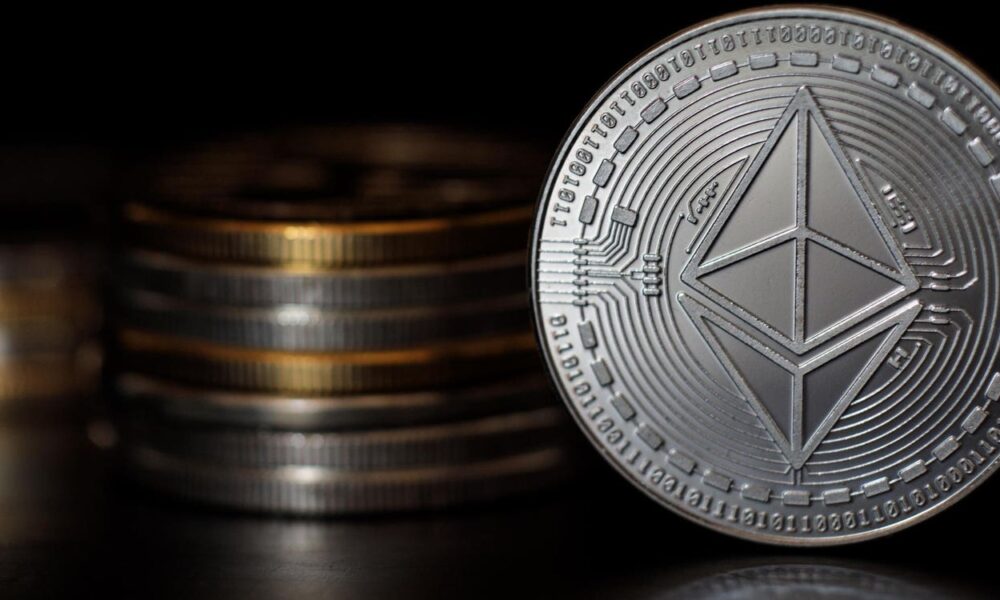News
What Ether ETFs Mean for Cryptocurrency Adoption

Ether ETFs Will Bring Big Changes to the Cryptocurrency Market
Getty Images
Slowly, and then all at once seems to be an apt way to describe the pace at which cryptocurrency ETFs have hit the U.S. market. After 11 spot bitcoin ETFs were approved in January, July saw the approval of 8 Spot ETFs on Etherpotentially opening the spigot for new investment and adoption of cryptocurrency. While significantly smaller in terms of market capitalization than bitcoin, the fact that Ethereum
Ethereal
Blockchain serves as a foundational layer for many newer blockchain applications and creates a different opportunity for investors and policy advocates. These estimates have proven accurate so far, with billions in trading volume already occurring despite the smaller market cap.
Let’s take a look at some other things that cryptocurrency investors, especially ether, should keep an eye on as the market processes spot ETF approvals.
Widespread knowledge will improve
One of the most important things for cryptocurrency investors, entrepreneurs, and policy advocates to remember is that while cryptocurrencies and tokenized assets more broadly have been part of financial markets for years, there are still significant gaps in what traditional investors and advisors understand about this asset class. Bitcoin
Bitcoin
Despite all the coverage and analyst discussion it receives, it remains almost singularly bought and held for the possibility of price appreciation. Whether labeled as digital gold or some other naming convention, the core appeal remains the same.
Ether and the Ethereum blockchain, on the other hand, are well understood and regarded by the cryptocurrency community as more of an operational cryptoasset, serving as the blockchain and token of choice for enterprise adoption and many Layer 2 applications. Such applications include smart contracts, of which the Ethereum blockchain holds a 50% market shareand stablecoins, with approximately 60% of those tokens operating on the Ethereum blockchain. With so much of the cryptocurrency ecosystem running on Ethereum, it is almost certain that a broader education and understanding of the role Ether plays will follow further analysis of Ether in a post-ETF market.
The price of ether will be monitored closely
While investors and market analysts eagerly discuss and observe the trading volume, inflows, and prices of ether ETFs, the fact remains that there is something of a unique pricing paradox for ether. Because ether occupies such a prominent position in many of the blockchain applications most sought after by institutions and investors, the price of ether can easily negatively impact the costs of running these applications. While multiple efforts and updates to reduce the fees charged for many of these applications have been successfully implemented, the price of ether fees will continue to be closely monitored.
What this means for market observers is that while some investors may want ether’s price to follow bitcoin’s performance, with significant gains following ETF approval, the reality may be a little more complicated. In fact, ether’s very importance to the cryptocurrency ecosystem may actually lead to lower prices than might otherwise occur. This may disappoint some investors in the short term, but it will ultimately help the Ethereum blockchain continue to grow, as well as maintain focus on application development over price speculation.
Regulatory oversight will increase
With all the positive momentum that an ether ETF brings to ether and the broader cryptoasset community, it is almost certain that this development will directly or indirectly lead to increased regulatory scrutiny. In particular, the approval of bitcoin and ether ETFs has been long overdue, but the process by which these products received approval appears to be unique to these two individual cryptoassets, and unlikely to be the case for many other similar products in the near term.
At the same time, the same critical role that the Ethereum blockchain and ether play in the cryptocurrency community also means that these assets will inevitably attract more regulatory attention. With applications like smart contracts, stablecoins, decentralized finance, and non-fungible tokens running (largely) on Ethereum, the number of regulators and agencies becoming more aware of ether is only set to increase. That doesn’t mean this is automatically bad news, but investors and policy advocates should be prepared for more targeted questions about ether and cryptocurrencies in general.
Ether ETFs are useful for cryptocurrencies, but they have much more important implications than just the price per token.
